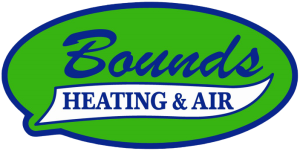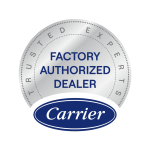Should I Upgrade to a Two-Stage or Modulating Furnace?
Trying to find the furnace that is best for your home can be a complicated process. That’s why we compiled this list of pros and cons to ensure you get the heater that’s right for you!
MODULATING FURNACE
Modulating furnaces are perfect for homeowners who tend to be picky about their heat settings. These systems are designed to adjust their flame in small increments to give you tons of options regarding how much you want to heat your home.
Pros
Greater energy efficiency- Modulating furnaces are the most energy-efficient heaters on the market. Because this system can adjust its flame in slight increments, it can reach an incredible AFUE rating of up to 98%, which means that for every dollar worth of fuel consumed, 98 cents goes toward heating your home. With a rating like that, you should start to see a noticeable drop in the cost of your energy bills right away.
Increased control- No other furnace type has nearly the same amount of temperature control as the modulating furnace. These units allow you to keep your home within one to two degrees of the temperature of your choice. Modulating systems have adjustable heat settings and often come equipped with a variable-speed blower, which will significantly reduce hot and cold spots in your home.
Cons
Costly- These furnaces are the most expensive on the market. While they’re the best at what they do, not everyone can throw as much as $10,000 toward a furnace installation.
Is it Right for Me?
The modulating furnace is an excellent investment for those who aren’t looking to move anytime soon. The energy savings from this system often pay for themselves in anywhere from 3.5 to 5 years, after which you should have at least 15 more years of ongoing heating savings.
TWO-STAGE FURNACE
As the name suggests, a two-stage furnace’s burner runs at two different levels. For example, these burners can run on high heat during the winter and low heat for more moderate days.
Pros
Cheaper option – The two-stage furnace’s most significant advantage over the modulating furnace is its cost. On average, a two-stage will cost around a couple thousand less with insulation than a modulating unit.
Cons
Less Control- Two-stage furnaces do not have as much control of the temperature as modulating furnaces. While this heater will still eliminate hot and cold spots as well as temperature swings, it doesn’t provide nearly the same amount of control over the temperature as a modulating heater.
Decreased Efficiency- While a two-stage heater is more efficient than other models, it simply can’t compare to the modulating furnace as the increased control of the burners allows you to operate at lower capacities instead of having to choose between hot and cold.
Is it Right for Me?
If you’re not 100% you have found your forever home, the two-stage furnace is a better option. This system combines the best of both worlds by providing you with cheaper up-front costs while still increasing the value of your home and heating your house well.
Ready to upgrade your furnace? Bounds Heating & Air has experienced technicians who can handle whatever heater you decide is right for your home. Contact us online or give us a call at (352) 472-2761 to get your installation scheduled today!


 During the summer months, people tend to make it a priority to schedule routine maintenance on their HVAC system to prepare for the hottest summer days here in Florida. As the season begins to change and the weather cools it often seems like less of a priority. However, even though Florida may not experience the harshest winters, HVAC systems still have to work hard to maintain comfortable temperatures in your home when the weather is cold. Here’s how to keep your home temperature comfortable this fall and winter:
During the summer months, people tend to make it a priority to schedule routine maintenance on their HVAC system to prepare for the hottest summer days here in Florida. As the season begins to change and the weather cools it often seems like less of a priority. However, even though Florida may not experience the harshest winters, HVAC systems still have to work hard to maintain comfortable temperatures in your home when the weather is cold. Here’s how to keep your home temperature comfortable this fall and winter:
 Think about the amount of time that you spend in your home. Now imagine the number of toxic compounds in your home that come from chemical-based cleaning products, air-fresheners, and other products. These are everyday household items that you typically don’t think twice about, but they can emit toxins that are detrimental to your health. Other indoor pollutants can stem from pollen, mold, bacteria, and more! These pollutants tend to be more harmful in small or poorly ventilated areas.
Think about the amount of time that you spend in your home. Now imagine the number of toxic compounds in your home that come from chemical-based cleaning products, air-fresheners, and other products. These are everyday household items that you typically don’t think twice about, but they can emit toxins that are detrimental to your health. Other indoor pollutants can stem from pollen, mold, bacteria, and more! These pollutants tend to be more harmful in small or poorly ventilated areas. During the hot summer days here in Florida, you may find it difficult to keep the temperature in your home balanced. Whether you have a sitting room that is exposed to large amounts of sunlight and never stays cool or a room that is always too cold, you may be wondering how to find a balance in temperatures. This problem stems from a traditional HVAC system that uses one thermostat to regulate the temperature of your entire home. With traditional HVAC systems, you may find yourself turning the AC up too high or too low to accommodate that one area of your home that doesn’t maintain the same temperature as other rooms, which can also increase your bill.
During the hot summer days here in Florida, you may find it difficult to keep the temperature in your home balanced. Whether you have a sitting room that is exposed to large amounts of sunlight and never stays cool or a room that is always too cold, you may be wondering how to find a balance in temperatures. This problem stems from a traditional HVAC system that uses one thermostat to regulate the temperature of your entire home. With traditional HVAC systems, you may find yourself turning the AC up too high or too low to accommodate that one area of your home that doesn’t maintain the same temperature as other rooms, which can also increase your bill. Typically when people experience problems with their home air quality, they associate the issue with malfunctions within the HVAC system as a whole. Although, one thing that people tend to overlook is their air filter. Do you remember the last time you changed your air filter? Air filters serve as a barrier that prevents harmful debris, pollutants, pollen, and dust, from entering into your home. Depending on the amount of activity and or pets in your home, it is recommended to change your air filters every 60 to 90 days. Lack of replacing air filters in your home can lead to:
Typically when people experience problems with their home air quality, they associate the issue with malfunctions within the HVAC system as a whole. Although, one thing that people tend to overlook is their air filter. Do you remember the last time you changed your air filter? Air filters serve as a barrier that prevents harmful debris, pollutants, pollen, and dust, from entering into your home. Depending on the amount of activity and or pets in your home, it is recommended to change your air filters every 60 to 90 days. Lack of replacing air filters in your home can lead to:

